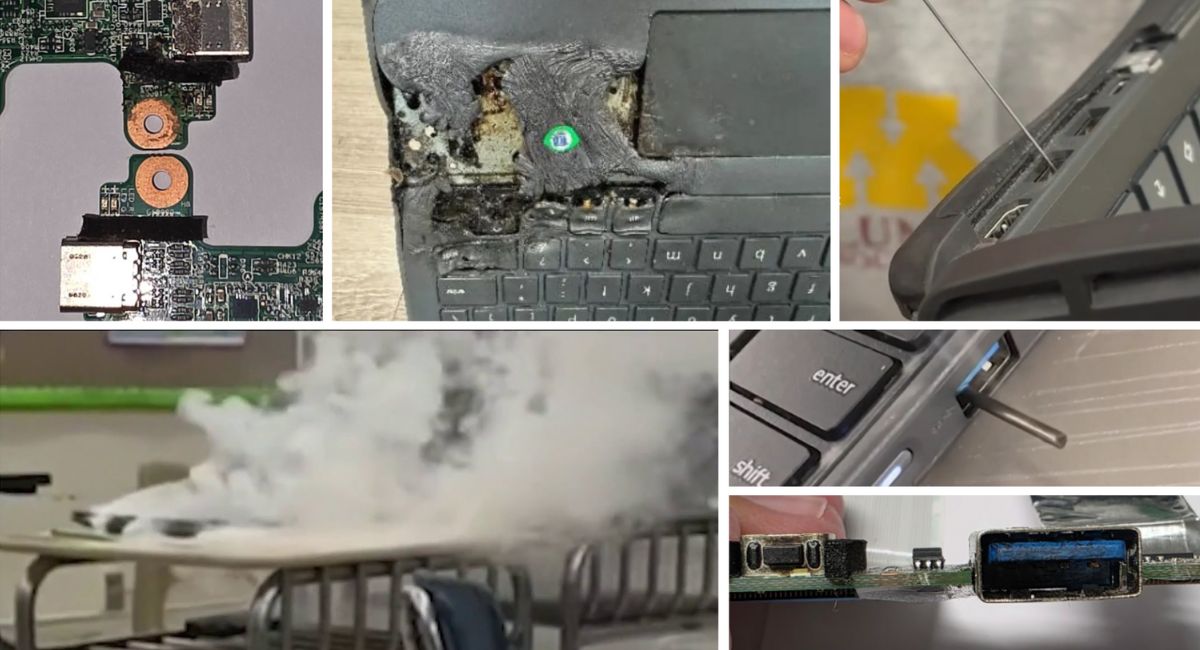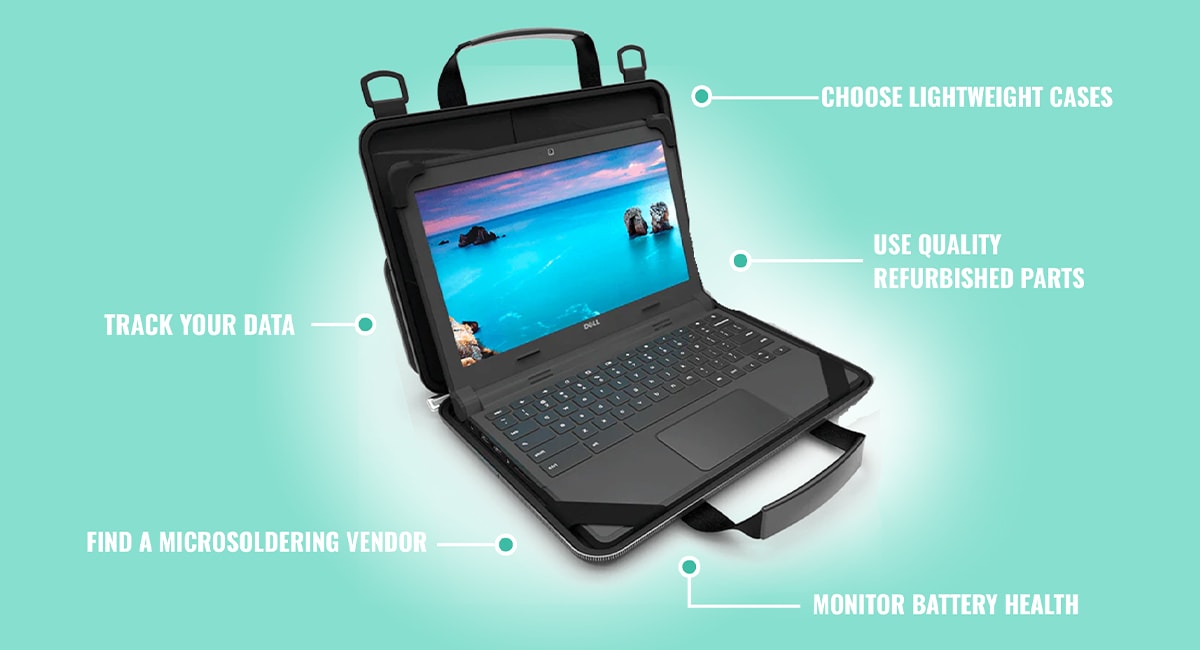We recently asked a school technician to help us determine the key factors to creating and maintaining an efficient tech environment in a school system. Here is what he had to say:
The most important piece is having cooperative staff that is determined to solve technology-related issues. Aside from reliable staff members, what makes our technology department run smoothly is the fact that we are all informed on the technology that is in each room of each school.
Having this awareness of brands/types of technology in each room allows us to easily learn how to troubleshoot specific technology and learn the most common failures/issues with these devices. Behind the scenes, we keep everything inventoried and managed by a web-based software. This allows us to track and see what parts are being used the most, at what buildings, etc. This assists in determining what could potentially be a repeating failure in a piece of technology. This software also helps with budgeting as well.
For the end-user (our teachers and other staff), we use another web-based software for managing and creating work tickets. If a staff member encounters a technology-related issue, they are to create a work ticket in this software. Doing so alerts our techs to the issue. For chromebooks, each school has its own schedule. For example, the high school has a dedicated time at the beginning of the day and near the end of the day for students to get their chromebook looked at if it is not working properly. This is not uniform for all schools, but it works well at the high school level.
With these systems/software in place, our school system continues to run quite smoothly and is able to tackle the challenges that come with a K12 Technology environment.
What do you feel like your school does better than other schools?
Once you are in the K12 field of work, it becomes clear that most schools encourage you to work with each other rather than work competitively against each other.
With that being said, what I feel our school system does very well (at least in the technology department) is make the work environment more than just that. Yes, we are all here to work but that isn’t our purpose of being here. We are all driven to help others with technology and make technology something that drives learning rather than causes students and staff headaches. Our team works together toward this mission, making our work feel less like a job and more like a family environment.
Are there any changes that you have made that have drastically improved your efficiency?
I recently transitioned from using a desktop at my workstation to a laptop. This is something I should have done a long time ago, to be honest.
This is beneficial in that, regardless if I have to leave the office or if I am at the office, the same device is being used. This allows me to be efficient by having a machine that can access all of our upper-level K12 pieces (SCCM, Active Directory, Google Admin Console, etc.) whether that is in my office environment or elsewhere. With my main machine being a laptop, I have the freedom to take those tools anywhere in the district, if need be.
This is relatively a small change, but has yielded a drastic increase in my efficiency.
In what areas, if any, do you feel like your tech environment is still lacking?
I think that in general technology departments need to start focusing on wireless technologies in the classroom. I know some schools have already dabbled in this field of technology and I believe it will become the norm as we move forward with technology.
To be more specific, most schools are spending large amounts of money on projectors/presentation boards and a lot of these require a hard-connection to display. I believe the next step is to rule out that piece of being tethered to a cable/box.
There are multiple resources when it comes to this technology, but it is presented the best by Apple (in my opinion) with being able to airplay to any Apple TV with any Apple device (if the device is newer or still supported).
With this very specific environment, a school could spend less on SMART Boards or projectors and put those funds towards a nicer television and Apple TV (this is with Apple products already being deployed to the school(s) body.)
In summary, wireless technology is getting to the point where it could replace a lot of the current norm for classroom technology. In the next 5-10 years, I see it becoming mainstream in most technology departments.
Do you have any advice for other K-12 tech coordinators?
What I have learned that I wish I knew when I first started working in the K-12 environment is that most teachers/staff just want transparency.
Don’t be afraid to say that you don’t have the answer or that you are unsure what is causing a certain issue. As long as you are vocal that you or the technology department is looking into the matter, that is usually enough to ease the minds of most staff.
Staff do not become frantic or upset because there is an issue, but they do when they feel like nothing is being done about it!
In summary, regardless of if you have the answers or not, be proactive and communicative with your staff/teachers.
Can you briefly describe your school’s tech team and how that program helps both the students and the school at large?
At our school system, we have a TSS (Technology Support Staff) at each of our seven buildings. This is the first “wave of defense” when it comes to technology issues.
After this, we have technicians (my position) that aid the TSSs with issues they find difficult to resolve. The techs manage a lot of the backend as well (SCCM, Active Directory, Google Admin Console, etc.).
Lastly is the Technology Director (Chief Operations Officer).
We also have a student intern program for our technology department. Students in this program shadow our techs and learn what all our position entails. They are exposed to the backend software we use. These students are also introduced to the entire chromebook repair process. There really isn’t much we leave out for these students (they also still get Lenovo ASP certified through our partnership with K12 Tech).
In all, the way our technology department is structured allows us to be flexible and proactive in solving technology issues around our entire district.



